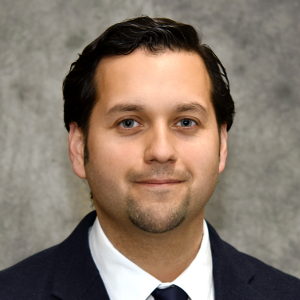Speaker Profile
M.D., Ph.D., Assistant Professor of Pathology and Medical Oncology, Yale University

Biography
Dr Schalper is an Assistant Professor of Pathology and Medical Oncology at Yale University and Director of the Translational Immuno-oncology Laboratory in the Yale Cancer Center. Dr Schalper has prominent expertise in studying biomarkers for anti-cancer immunotherapy. He trained as a physician-scientist specializing in cancer cell biology and molecular pathology. His clinical interests include molecular diagnostics, tumor biomarkers and cancer immunopathology. His laboratory research focuses on understanding the immunobiology of human solid tumors and develop molecular biomarkers for response or resistance to therapies. Dr. Schalper also participates as translational researcher/lead in clinical trials supporting the biomarker/biospecimen planning and execution of correlative studies. He has been an active member of diverse professional/scientific associations including the United States and Canadian Academy of Pathology (USCAP), the International Association for the Study of Lung Cancer (IASLC), American Society of Clinical Oncology (ASCO), American Association for Cancer Research (AACR) and Society for Immunotherapy of Cancer (SITC).
Session Abstract – PMWC 2019 Silicon Valley
Session Synopsis: Immunotherapies have revolutionized cancer treatment in recent years. Despite these successes, not all patients respond, and some can experience toxicities. The tumor microenvironment (TME) offers a wealth of new information to aid the development, optimization, and monitoring of more effective immunotherapies. This microenvironment includes a complex network of proliferating tumor cells, the tumor stroma, blood vessels, infiltrating inflammatory cells, and a variety of associated signaling molecules. Orchestrating the critical balance between health and disease, cells within the TME can act either in a protective manner or as accomplices. In this session, you will hear how recent advances in highly multiplexed mass cytometry and tissue imaging are providing new research insights into the dynamic TME, increasing our understanding of tumor immunity and therapeutic response.




